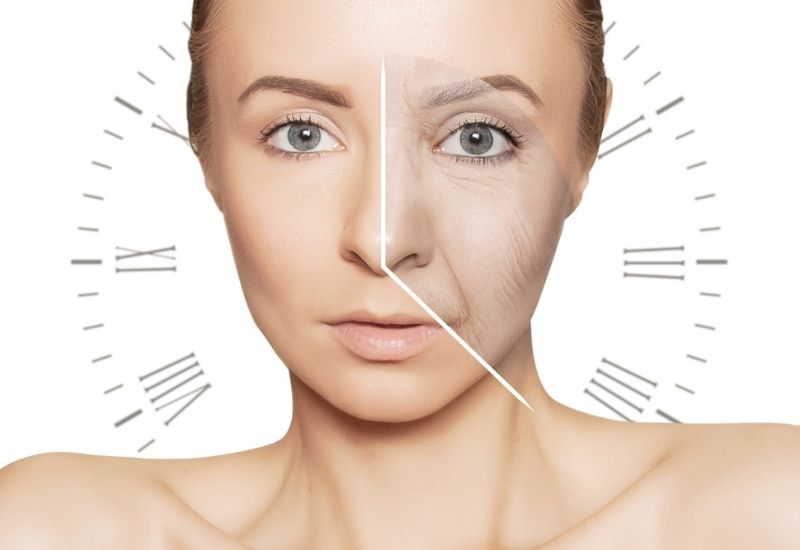Are You Aware That Your Skin Has a Natural Clock?
Did you know that your skin operates on its own schedule, much like the rest of your body? This phenomenon, known as the skin’s circadian rhythm, plays a crucial role in maintaining skin health. Understanding this natural clock can help you align your skincare routine for optimal results.
In this article, we explore how your skin’s natural clock works, its impact on skin health, and what you can do to support it.
What Is the Skin’s Natural Clock?
The skin’s natural clock refers to its circadian rhythm, a 24-hour internal cycle influenced by the body’s master clock located in the brain. This cycle affects various biological processes, including cell regeneration, hydration, and barrier function. According to Healthline, disruptions in circadian rhythm can lead to skin issues such as premature aging, dryness, and sensitivity.
Key Functions of the Skin’s Circadian Rhythm
Daytime Protection: During the day, your skin’s primary function is to defend against environmental aggressors like UV rays and pollution.
Nighttime Repair: At night, the skin focuses on repair and regeneration, producing collagen and repairing damage caused by daytime exposure.
Why Does the Skin Have a Clock?
Your skin’s circadian rhythm is regulated by both internal and external cues, such as light exposure and your sleep-wake cycle. This clock ensures that your skin performs the right functions at the right time:
Protection During the Day: The skin’s barrier strengthens to minimize damage from harmful UV rays, pollutants, and free radicals.
Regeneration at Night: Skin cell turnover increases, and processes like DNA repair and collagen production peak.
How Disruptions Impact Your Skin
When your skin’s natural clock is disrupted, it can lead to several issues:
1. Premature Aging
Lack of sleep or irregular routines interfere with collagen production, leading to fine lines and wrinkles.
2. Dehydration
The skin’s ability to retain moisture diminishes, resulting in dryness and dullness.
3. Increased Sensitivity
A disrupted barrier function makes the skin more susceptible to irritants and allergens.
4. Breakouts
Irregular sleep patterns and stress can increase sebum production, leading to clogged pores and acne.
High-Authority Source:
According to the Cleveland Clinic, maintaining a healthy circadian rhythm is essential for overall health, including skin health.
Tips to Align Your Skincare Routine with Your Skin’s Natural Clock
Adapting your skincare routine to your skin’s circadian rhythm can enhance its effectiveness. Here’s how:
Morning Skincare
Cleanse: Remove excess oil and impurities that accumulate overnight.
Moisturize: Use a lightweight moisturizer to lock in hydration.
Sunscreen: Apply a broad-spectrum sunscreen with SPF 30 or higher to protect against UV damage.
Antioxidants: Incorporate products with vitamin C to combat free radicals.
Evening Skincare
Double Cleanse: Remove makeup, sunscreen, and pollutants with an oil-based cleanser, followed by a gentle cleanser.
Hydrate: Use a hydrating serum with hyaluronic acid.
Repair: Apply products with retinol or peptides to boost cell turnover and collagen production.
Night Cream: Finish with a nourishing night cream to seal in moisture and support the repair process.
Lifestyle Tips
Stick to a consistent sleep schedule to support your body’s natural rhythms.
Avoid blue light exposure before bedtime to minimize circadian disruption.
Stay hydrated and consume a diet rich in antioxidants and omega-3 fatty acids.
Advanced Treatments for Skin Health
If you’re experiencing skin issues related to circadian rhythm disruptions, professional treatments can help. Dr. Pretty Singla, a dermatologist at Pretty Skin Clinic, offers personalized solutions to restore your skin’s health. These include:
1. Chemical Peels
Exfoliate dead skin cells and boost cell turnover to restore a healthy glow.
2. Microneedling
Stimulates collagen production and enhances skin repair.
3. Laser Treatments
Targets pigmentation and improves overall skin texture.
4. Customized Skincare Plans
Dr. Singla emphasizes the importance of tailoring skincare routines to individual needs, ensuring alignment with the skin’s natural clock.
The Role of Sleep in Skin Health
Quality sleep is a cornerstone of healthy skin. During deep sleep, the body releases growth hormones that promote repair and regeneration. Sleep deprivation, on the other hand, accelerates aging and exacerbates skin issues.
Tips for Better Sleep
Establish a bedtime routine to signal your body that it’s time to wind down.
Use blackout curtains to create a dark, sleep-friendly environment.
Avoid caffeine and heavy meals in the evening.
Myths About Circadian Rhythms and Skin
Myth 1: Circadian Rhythm Only Affects Sleep
Fact: Circadian rhythms influence various bodily functions, including skin regeneration and hydration.
Myth 2: More Sleep Equals Better Skin
Fact: While adequate sleep is essential, quality matters more than quantity. Deep sleep phases are crucial for skin repair.
Myth 3: Night Creams Are Not Necessary
Fact: Night creams are formulated to support the skin’s repair processes, making them an essential part of your routine.
Final Thoughts
Understanding your skin’s natural clock can revolutionize the way you care for your skin. By aligning your skincare routine with your circadian rhythm, you can maximize the effectiveness of your products and maintain a youthful, radiant complexion.
For expert advice and treatments, consult Dr. Pretty Singla at Pretty Skin Clinic. Her expertise in dermatology and personalized approach can help you achieve your skincare goals.
Disclaimer: The information provided is for informational purposes only and does not constitute medical advice. Readers should consult with a qualified healthcare professional for diagnosis and treatment.

Comments
Post a Comment